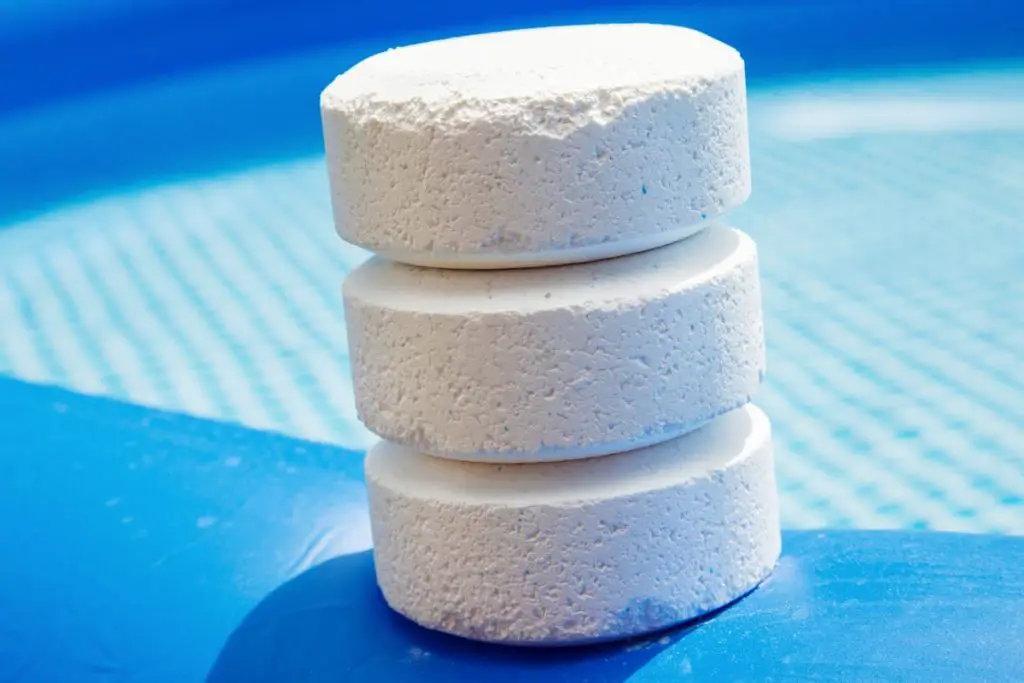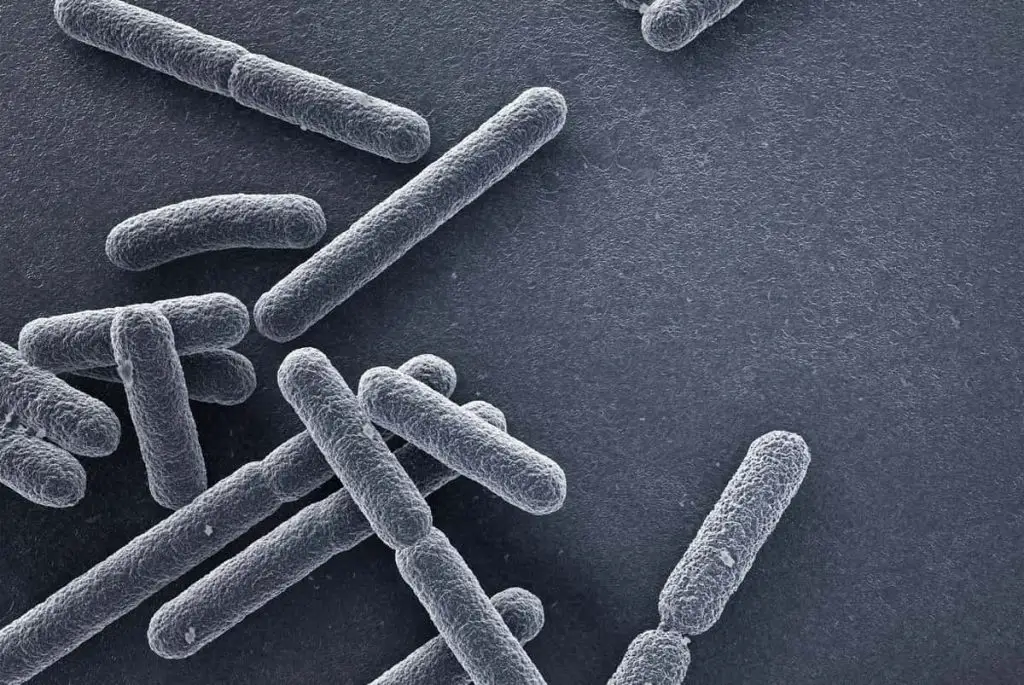Chlorine often gets a bad reputation as an irritant. While it sure may mildly irritate your eyes and skin sometimes, chlorine plays a crucial role in keeping our pool water clean. It ensures that our pool water is free of bacteria and parasites, which further helps us prevent illnesses and infections.
You can swim in a pool without chlorine, but it is largely unsafe. This is because chlorine is the only water disinfectant that offers fast and residual protection. While other sanitizers exist, they all require a low amount of chlorine to be present in the water to provide good protection.
Make sure you understand what chlorine does and what kinds of dangers untreated pool water may pose.

What Does Chlorine Do In a Pool?
Chlorine is used to disinfect water by reacting with organic matter and destroying germs and pathogens. Its widespread use is due to its fast reaction and residual protection in the water. This means that the water treated with chlorine will stay safe for a longer time.
Chlorine often gets a bad reputation as it can irritate lungs, skin, eyes, and bowels. However, this is usually due to abnormally high chlorine concentrations in the water rather than some inherent properties. In normal quantities, chlorine should not pose any problems to a healthy individual.
Chlorine is not used just for pool water; all tap water contains chlorine. As the Center for Disease Control informs us, quantities up to 4 ppm in drinking water are perfectly safe for consumption. If you can drink it, why should you not be able to swim in it?
Sometimes, you’ll see pool products advertised as chemical-free, but this is false. Everything is made of chemicals, and water itself is a chemical.
It is, of course, very romantic to think about swimming in pool water as close as possible to natural bodies of water. However, without chlorine, the body of water you’d get would be more akin to a swamp than an ocean.
What Contaminants Are There in the Water?
Some common contaminants in the water are urine, fecal matter, and sweat. These contaminants introduce a handful of dangerous contaminants into the pool water, especially in public pools.
The CDC warns us that each swimmer can introduce up to 0.14 grams of fecal matter into the pool. This statistic refers to public swimming pools, but it can be assumed that this is also true for private pools. Not to mention that this statistic is higher for children swimmers.
Entering an untreated pool would be similar to entering a public bathtub with your whole neighborhood. Even if it is just a private swimming pool, contaminants can pile up pretty quickly. Not to mention that bacteria reproduce at an insane speed and can quickly turn your pool water into a pond.
Of course, a very considerate thing to do apart from disinfecting your pool is showering before you use it. You’re going to save yourself some trouble and make a nicer, cleaner atmosphere for relaxation.
What Diseases Can You Get From Untreated Pool Water?
Chlorine has effectively eliminated outbreaks of waterborne diseases in the US and the rest of the developed world.
Some diseases you can get from untreated pool water include:
- Typhoid fever
- Dysentery
- Cholera
- Legionnaires’ disease
- E. coli infection
- Pseudomonas aeruginosa infection
Contracting any of the aforementioned health issues is far riskier than any risk posed by chlorine.

Typhoid Fever
As Scientific American informs us, before introducing the use of chlorine to treat water, typhoid fever had been killing 25 out of 100,000 people in the USA. These numbers are close to the numbers associated with automobile accidents today. However, chlorination has practically eliminated this illness.
Dysentery
Dysentery is another waterborne illness eliminated by chlorination. It is a particularly nasty one, with symptoms such as:
- Diarrhea
- Nausea and vomiting
- Stomach cramps and pain
- A high temperature
Cholera
Cholera is a waterborne illness common in the developing world, that is, parts of the world without enough chlorinated water. It can be contracted especially from ground wells and other natural bodies of water near residential areas.
It has similar symptoms to dysentery and hits the intestinal tract really hard.
Legionnaires’ Disease
This disease is caused by the legionella bacteria and is essentially a type of pneumonia. It causes symptoms such as:
- Fever
- Abdominal pain
- Headaches
- Unhealthy weight loss
E. Coli Infection
E. coli is one of the most common waterborne bacteria, which typically resides in the intestines of humans and animals. It is spread by fecal matter. Swallowing infected water can cause problems like:
- Diarrhea
- Fever
- Abdominal cramps
Pseudomonas Aeruginosa Infection
This bacterium is spread mainly by air, but it can also be contracted in an unsanitary swimming pool. It can cause symptoms such as:
- Conjunctivitis
- Sore throat
- Nausea
How Is Chlorine not Harmful to Humans?
Since Chlorine is so good at killing bacteria and other harmful contaminants, you might wonder how it can be safe to ingest it. After all, if it’s so good at killing stuff, why is it safe for us?
Chlorine is not harmful to humans because the quantities of chlorine that you ingest through water, especially while swimming, are too small to do anything. There isn’t enough of it to cause harm by the time it gets to your intestines.
Final Thoughts
While chlorine may seem scary because it can irritate, it is generally safe, especially in pools. It might cause some mild irritation, but it also kills harmful bacteria and parasites, which helps you stay healthy. Chlorine should pose no threat to a healthy person and cause no harm.
Swimming in a pool without chlorine is potentially hazardous and can lead to multiple complications and health problems. Treating your pool with low, safe amounts of chlorine is recommendable. This will keep your pool clean and safe while minimizing any irritation from the chemical.
Sources
- Centers for Disease Control and Prevention: Water Disinfection with Chlorine and Chloramine | Public Water Systems
- Clear Comfort: Is a Chemical-Free Pool Possible?
- Healthline: Chlorine Poisoning: Symptoms, Diagnosis, and Treatments
- Pacific Northwest National Laboratory: Just How Fast can Bacteria Grow? It Depends
- Water Quality and Health Council: Can Swimming Pools Go “Chemical Free”?
- Water Quality and Health Council: The Truth About Chlorine in Swimming Pools
- Water Quality and Health Council: The Chlorine Residual: A Public Health Safeguard
- Scientific American: How Does Chlorine Added to Drinking Water Kill Bacteria and Other Harmful Organisms? Why Doesn’t It Harm Us?
- NHS: Dysentery
- ActionAid UK: Cholera and Other Waterborne Diseases
